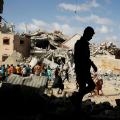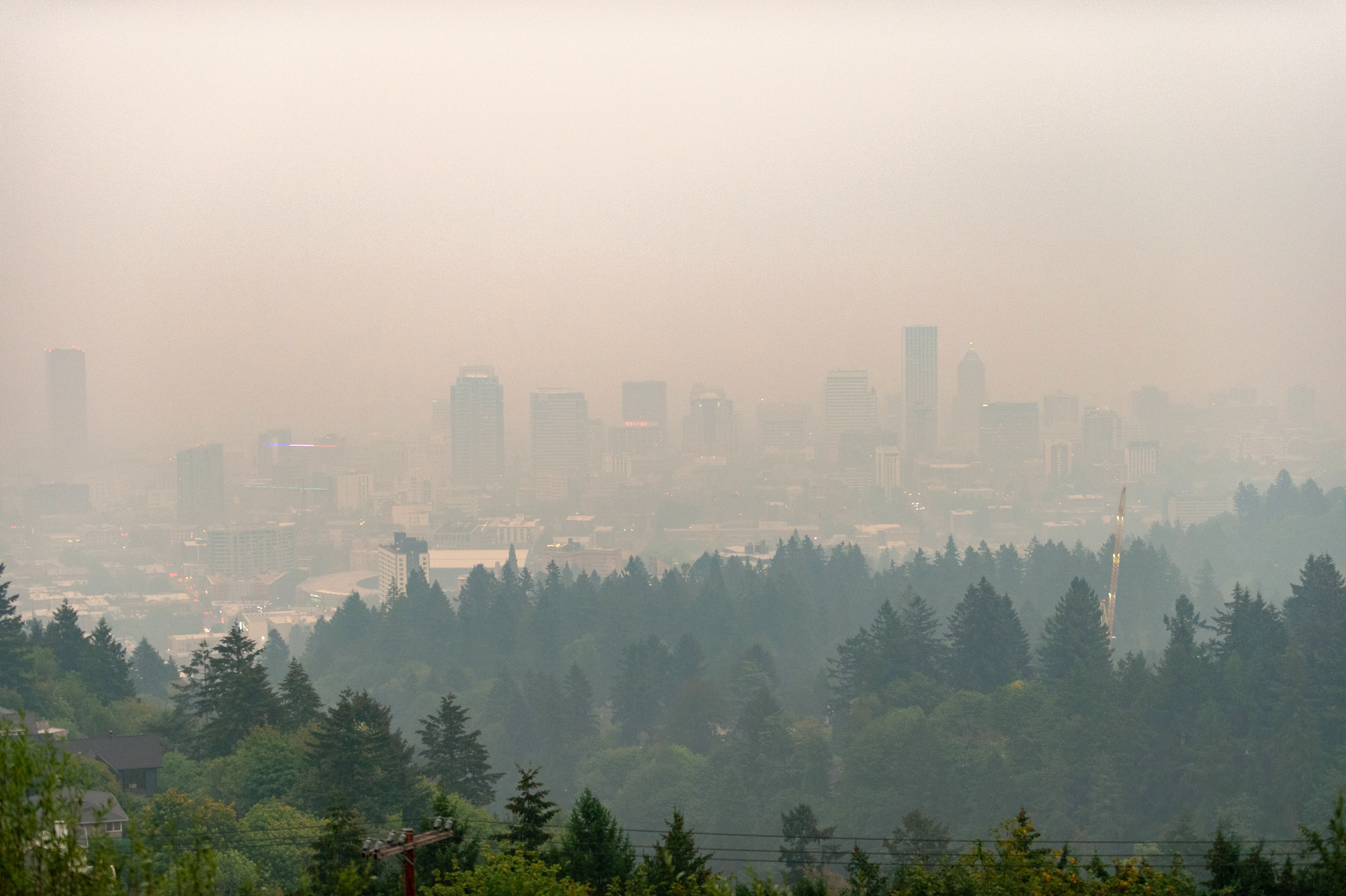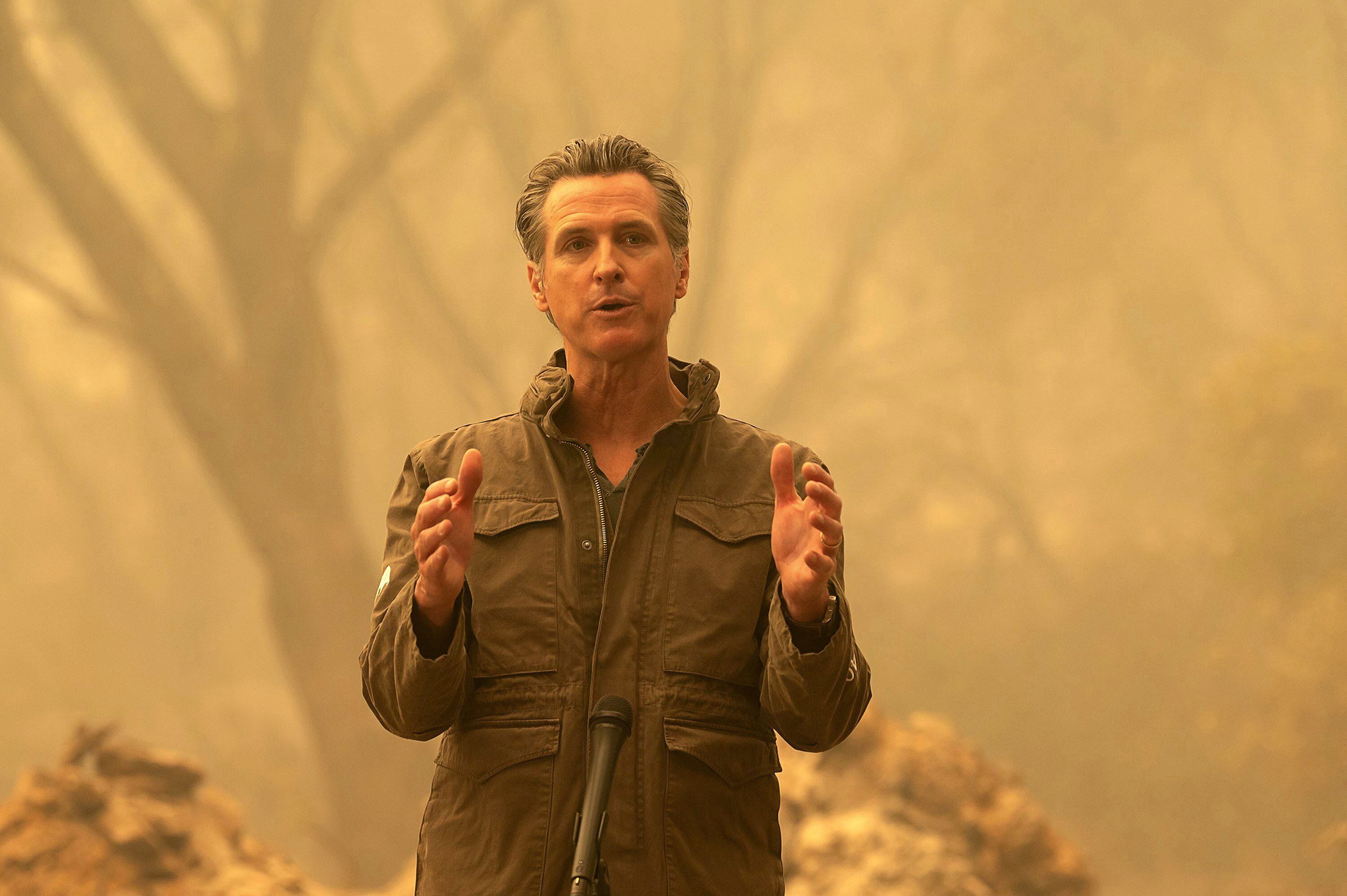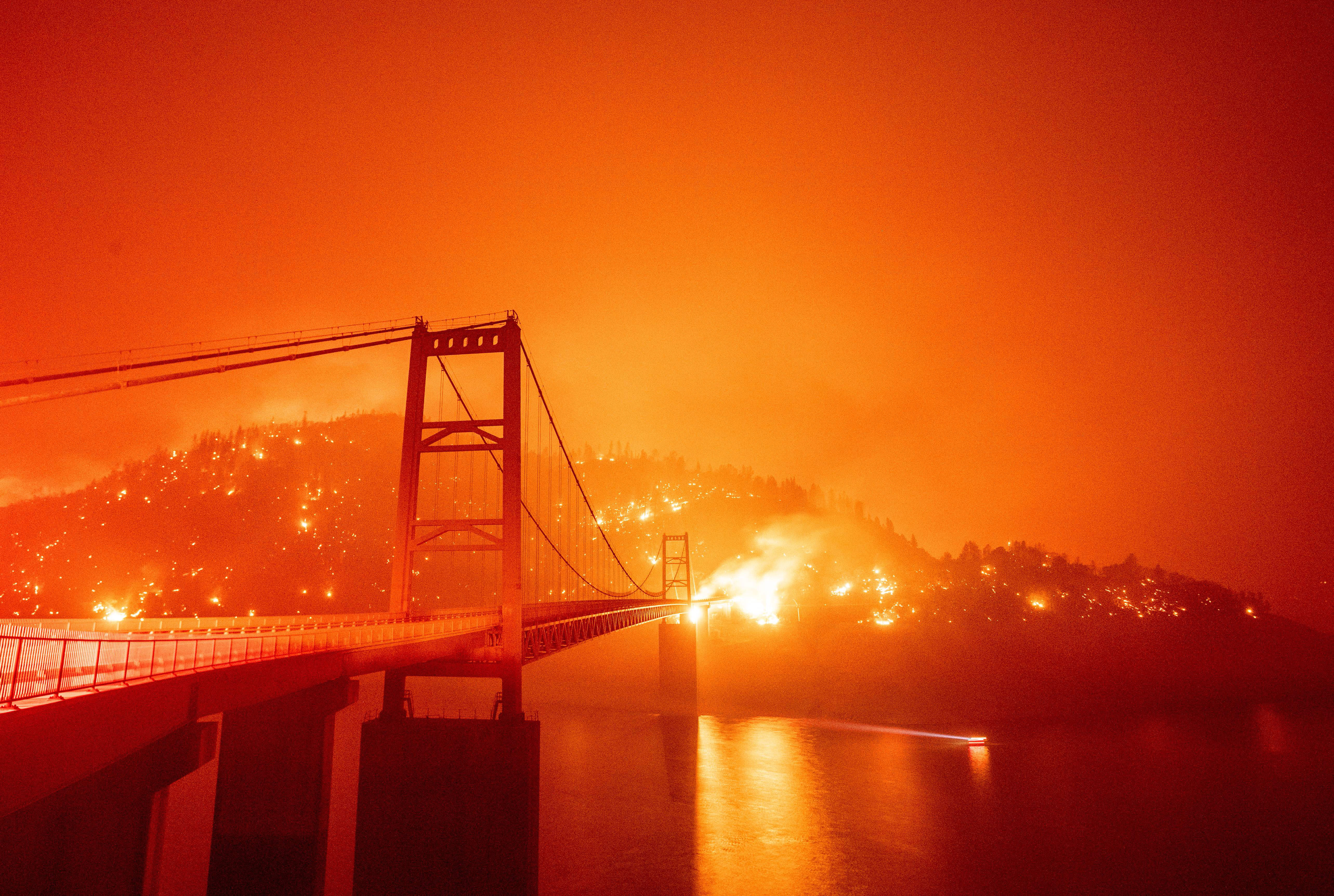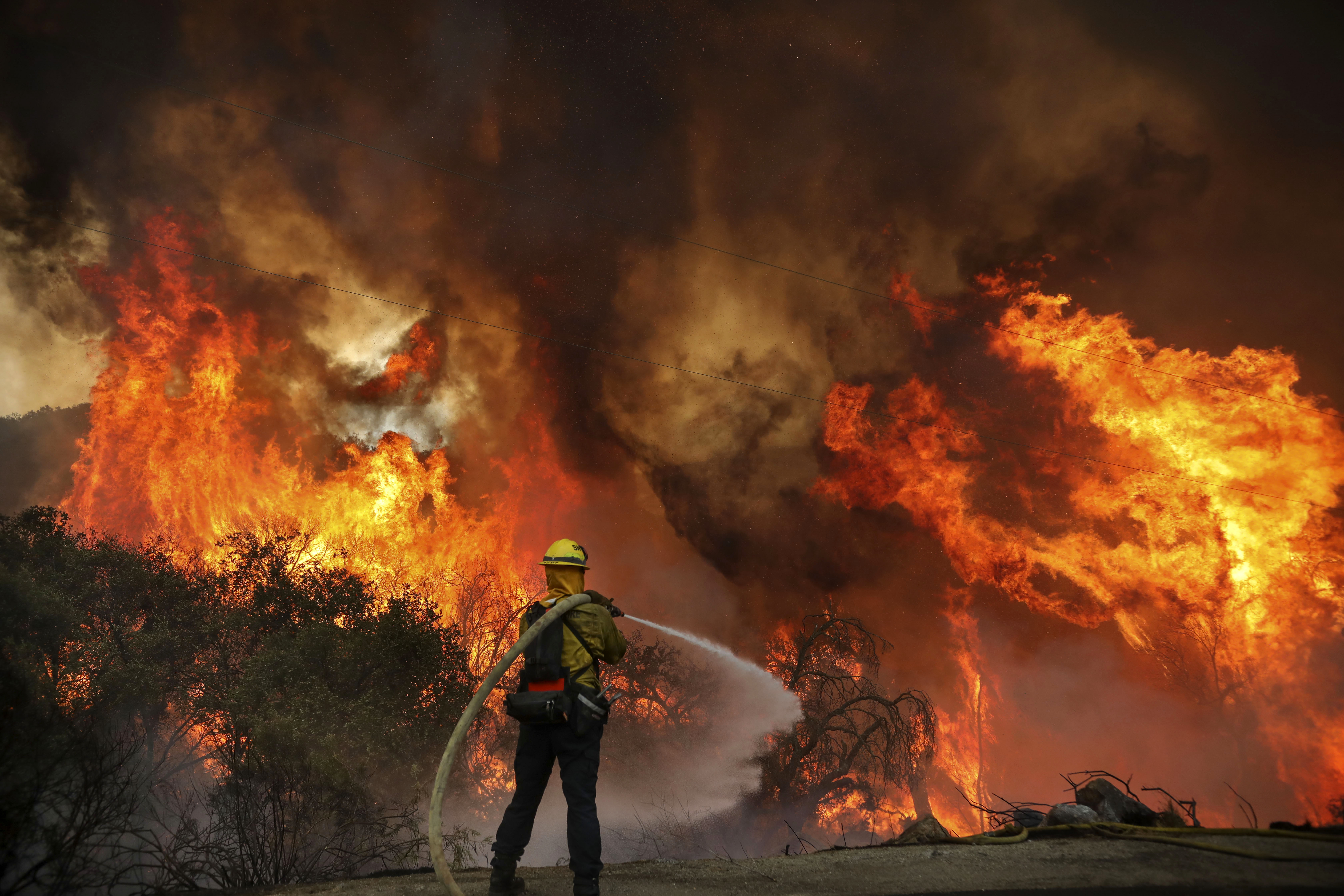
It's a devastating and historic fire season in the West — and scientists and local officials say the climate crisis is to blame.
In California, three of the five largest wildfires in state history are currently burning, officials say.
Oregon's governor said in a typical year, fires consume about 500,000 acres in the state — but "this week alone, we burned over a million acres of beautiful Oregon," she said.
And last week in Washington, more acres were burned in the state on a single day than were charred in the past 12 fire seasons, Gov. Jay Inslee said.
Here's a look at what we know about climate change and the unprecedented wildfires:
- West Coast leaders blame climate change: Both Gov. Gavin Newsom and Los Angeles Mayor Eric Garcetti have attributed the intensity of this season's fires to climate change. Oregon Gov. Kate Brown said climate change and mismanagement of the nation's forests are both to blame.
- What Trump is saying: Meanwhile, President Trump at a weekend rally repeatedly said the fires are about "forest management," a characterization he has repeatedly offered of such blazes that has been previously criticized as inaccurate.
- Warnings from scientists: Scientists have warned for years that fire seasons like this could come to pass, and that the more we humans heat up the planet, the more we are increasing the odds in favor of the hot, dry conditions conducive to fires. Though the scale of destruction is hard to fathom, climate scientists say we should not be surprised. "It's shocking to see the impacts, but not scientifically surprising," Daniel Swain, a climate scientist at UCLA and the National Center for Atmospheric Research told CNN last week. "This is in line with essentially every prediction for what could happen this year and the trends we're seeing over years and decades."
- It could get worse: How bad it gets depends on what we as humans do to reduce heat-trapping gas emissions, said Michael Mann, the director of Penn State University's Earth System Science Center. "By some measure, it's clear that 'dangerous climate change' has already arrived," Mann said in response to emailed questions from CNN. "It's a matter of how bad we're willing to let it get."
